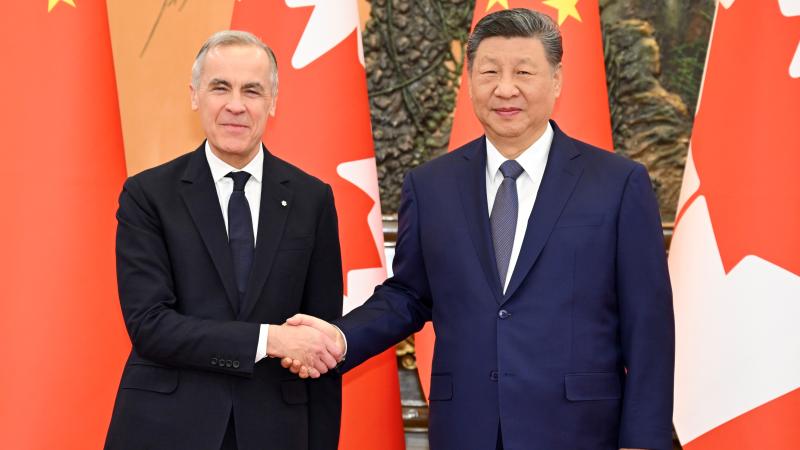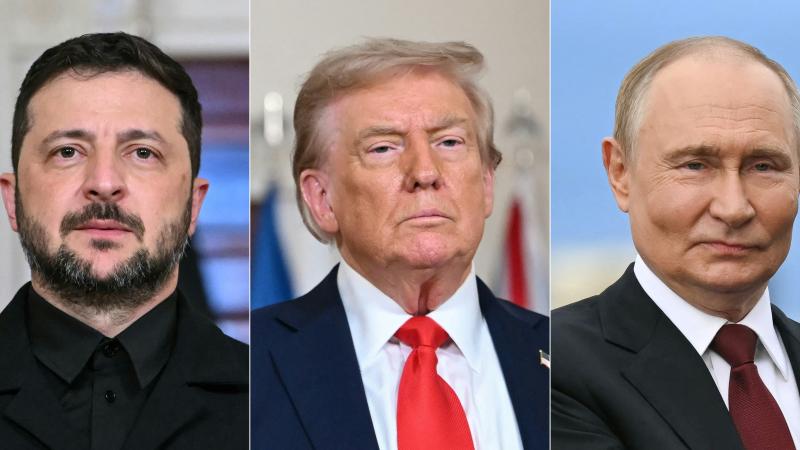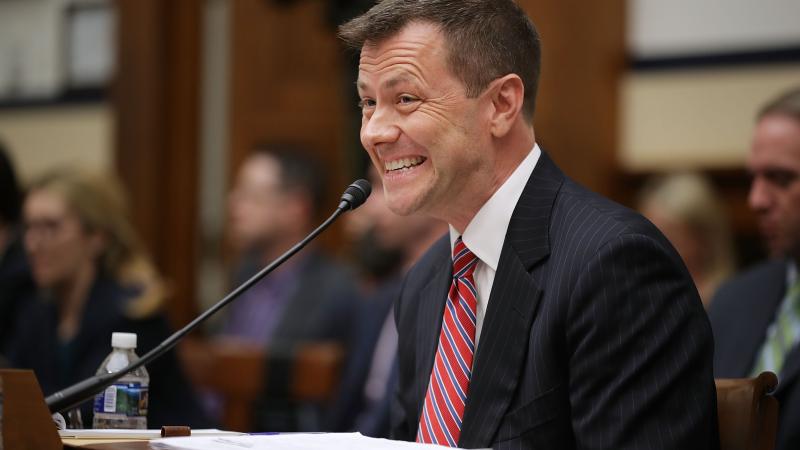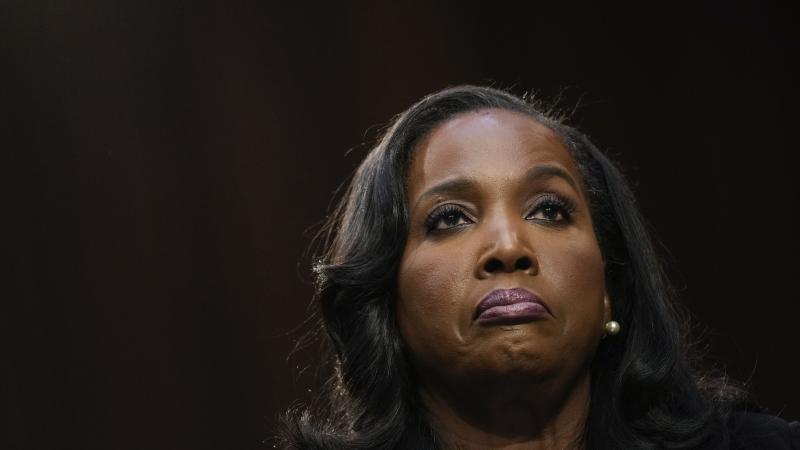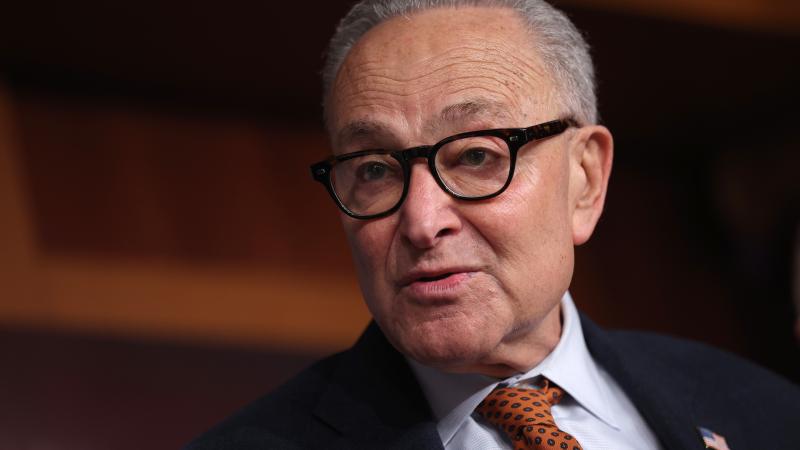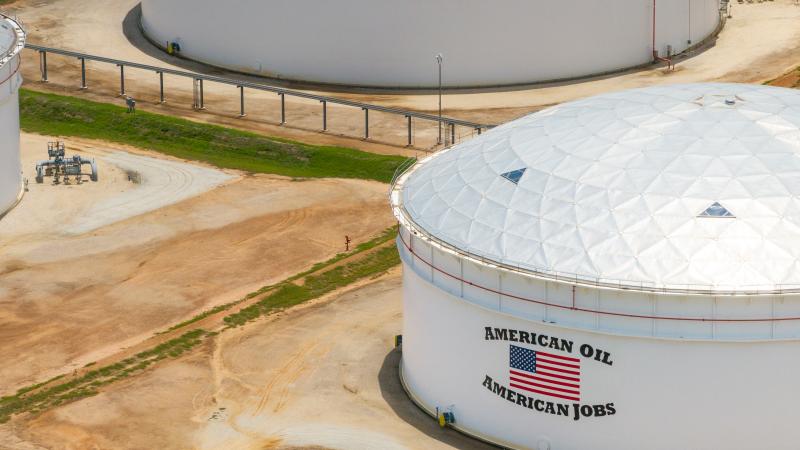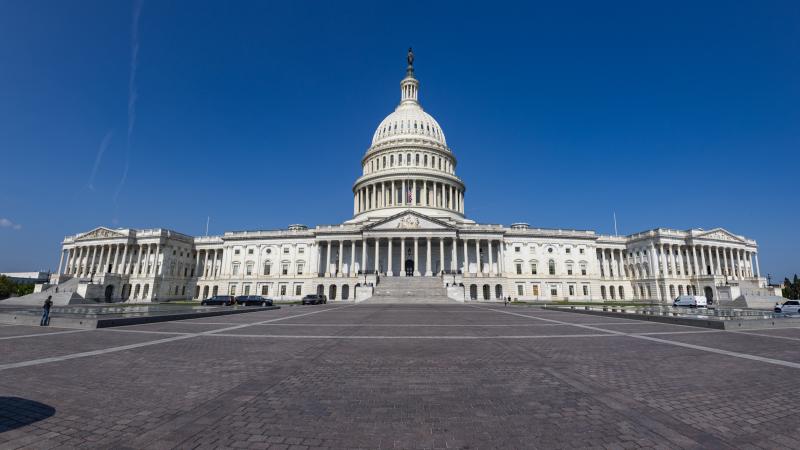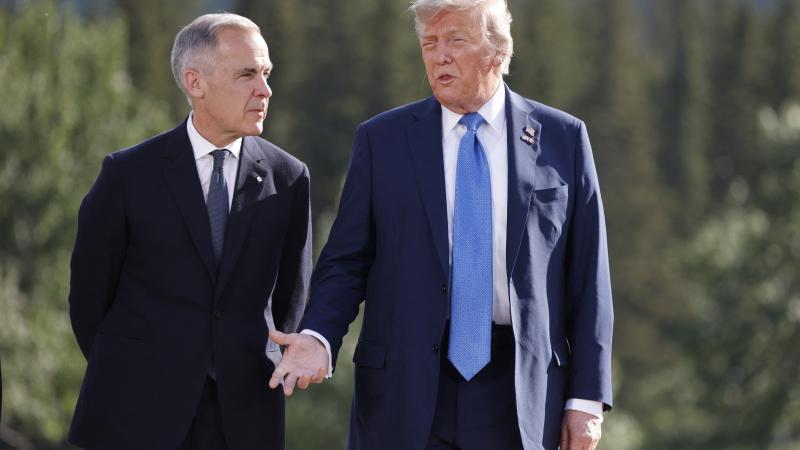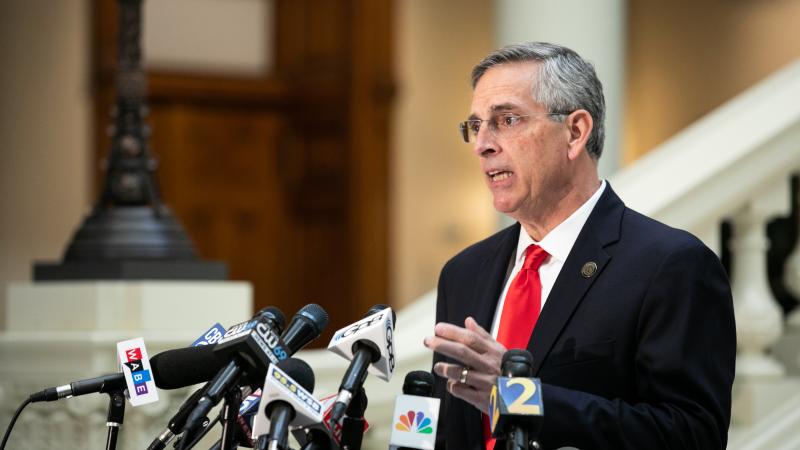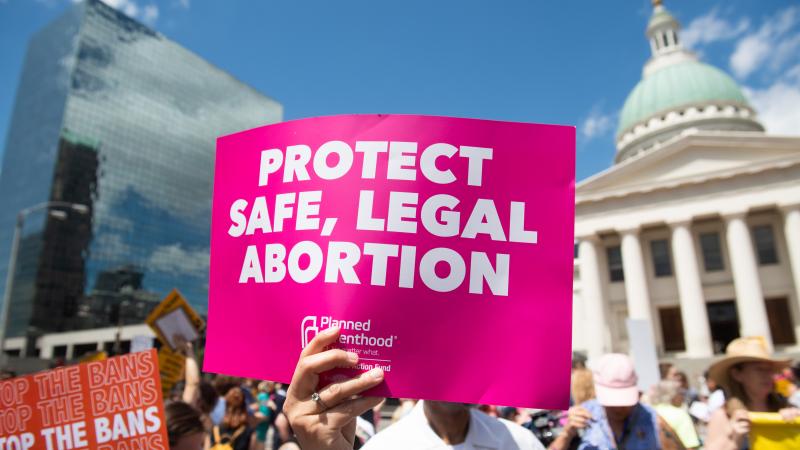Trump grows frustrated with Putin, warns Russia of tougher sanctions
Putin’s reluctance to engage in Trump-instigated peace negotiations have appeared to frustrate the American president, causing him to lash out at the Russian leader in several statements.
As President Donald Trump trades barbs with the Kremlin, both the administration and the Senate are mulling imposing tougher sanctions on Putin’s Russia to force the country to the negotiating table and end its war in Ukraine.
Despite reported deliberations inside the second Trump administration, the president has so far declined to ratchet up sanctions on Putin’s regime in the hopes of facilitating good-faith negotiations. The administration's options in generating incremental financial leverage over Russia are somewhat limited.
Though Trump repeatedly promised during the campaign to end the war within “24 hours,” the president’s pushes, prodding, and pleas for negotiations have gone unreciprocated by Moscow. Trump has been reluctant to impose tougher sanctions measures to punish Russia, in part over worries that they would further drive the country into China’s arms.
Putin failed to meet prior commitments
The president’s patience with Putin may be wearing thin. In fact, Putin’s reluctance to engage in the Trump-instigated peace negotiations appears to be frustrating to the American president, causing him to lash out at the Russian leader in several statements in recent days. On Tuesday, following a weekend of veiled warnings to Russia, President Trump warned that, by continuing attacks on Ukraine, Russia’s Putin is “playing with fire.”
“What Vladimir Putin doesn’t realize is that if it weren't for me, lots of really bad things would have already happened to Russia, and I mean REALLY BAD. He’s playing with fire!” Trump posted to his social media platform, Truth Social.
Fred Fleitz, former Chief of Staff on President Trump’s first term National Security Council, told Just the News that the conflict between Russia and Ukraine is moving into a very “dangerous stage” as Putin escalates attacks while spurning offers by the United States to facilitate negotiations.
“Putin has defied Trump. He's disrespected him. He hasn't met any of the commitments he's made to Trump in their one-on-one phone calls,” Fleitz told the John Solomon Reports podcast on Tuesday.
“He's accelerated the war, and now it's gotten so bad that the German Chancellor says that range limits are going to be removed from missile attacks by Ukraine, which means Ukraine could start firing ballistic missiles at Moscow. So I think Trump realizes how dangerous this is,” Fleitz continued.
Fleitz said that President Trump’s most recent messages to Putin are an effort to warn the Russian president about his willingness to impose sanctions targeting the regime’s remaining revenue streams.
“He's warning this of Putin, and I think Trump is prepared to impose some pretty stiff sanctions,” Fleitz said.
Threat of escalating aanctions
The Trump administration still has a few options to ramp up pressure on Moscow, despite continued debate over the effectiveness of sanctions in general. These include more robust efforts to interdict or sanction the shadow fleet which facilitates Russia’s dodging of Western oil sanctions, the seizure of Russian financial assets around the world, and sanctions against Russia’s central bank—the most potent of the options.
Fleitz says that new sanctions against Moscow would likely come in two stages, reserving the most damaging proposals for a second round, giving Putin an off-ramp from the worst effects on his economy.
“I believe that sanctions against the Russian Central Bank and also efforts to seize Russian financial assets around the world would be very, very tough sanctions that might be considered,” Fleitz said. “I think that would be in phase two, because […] I mean, this would lead to breadlines in Russia. It would be enormously disruptive to an economy that is already under fire.”
Earlier this month, the administration reportedly began formulating new sanctions that would target both the Russian banking and energy sectors. So far, Trump has avoided imposing them.
The U.S. has already imposed sanctions on Moscow’s central bank, but several options remain to ramp up these measures, causing more pain for the Russian economy. The Foundation for Defense of Democracies, a conservative foreign policy think-tank, assessed that these options could include officially designating the Central Bank of Russia as an SDN (Specially Designated National), which would threaten sanctions on any entities in third-party countries doing business with Russia’s bank.
As part of phase one, Fleitz said the administration may choose to target the extensive shadow fleet of oil tankers that Moscow is using to wiggle out from Western oil sanctions.
“Putin is using a so-called 'ghost fleet' of ships that are illegally transporting Russian crude oil around the world, and we know which ships these are and under which flags are registered, and I think there will be a pretty significant effort to start intercepting, interdicting them at sea as part of these new sanctions,” Fleitz said.
The shadow fleet
Since the invasion of Ukraine in early 2022, Russia’s so-called shadow fleet has expanded to include an estimated 1,400 vessels, allowing the Russians to export oil—in some cases directly to Europe—while avoiding the current sanctions regime.
Of the more than one thousand vessels in this fleet, only about 118 of them are sanctioned by a combination of Western countries. The fleet manages to circumvent sanctions by registering abroad—called registering a flag—avoiding usual inspections under maritime regulations, and obscuring ownership through complex arrangements.
After the Russia-Ukraine war began, the volume of tankers traversing the Baltic Sea increased dramatically. Between March 2020 and March 2022, just one month after the invasion, the number of journeys from Russia reportedly increased by more than 662 to ports in India, Greece, China, and Morocco—a shift from usual ports in European and U.S. ports.
Several countries across the global south have become havens for Russian shadow fleet registrations. For example, the ship registrations in the small African country of Gabon doubled during the first half of 2023. Ninety-eight percent of those vessels are “either subject to Russian shipping sanctions or has an unknown beneficial group owner,” according to an analysis by S&P Global. That analysis also found that in 2022 alone more than 860 new companies were established in the maritime industry with “an association or relationship to Russia,” highlighting the boom in the shadow fleet.
Western sanctions and price caps on Russian oil have significantly dented Moscow’s oil revenues, but the exports via the shadow fleet have allowed the country to avoid the worst effects, maintaining supplies to long-time buyers like India and expanding exports to China.
Senate sanctions bill proposed
Also on the table is a strong sanctions bill spearheaded by Senator Lindsey Graham, R-S.C., but which has garnered widespread and bipartisan support from the chamber. The bill would aim to isolate Russia as a “trade island” by slapping enormous tariffs on Russia’s trading partners, at minimum 500%, for importing Moscow’s energy products. The bill has secured 82 cosponsors in the closely divided chamber. Sen. Graham also insists that he has been in lockstep with the White House on every step of the bill.
“The consequences of its barbaric invasion must be made real to those that prop it up. If China or India stopped buying cheap oil, Mr. Putin’s war machine would grind to a halt,” Graham wrote in the pages of The Wall Street Journal.
The “Sanctioning Russia Act of 2025” would impose a 500% tariff on third-party countries that buy Russia’s oil, gas, uranium, and other products, that could affect friendly countries like China and Iran, as well as European Union members that continue to import Russian oil through the shadow fleet.
If a country does not comply, the legislation mandates the tariff rate be increased by another 500% every 90 days—a tough punishment for any third party doing business with Russia despite existing sanctions. These new tariffs would be particularly problematic for China. Its economy is already showing signs of significant distress as it tries to fend off trade tariffs from Washington and the nation is one of Russia’s key trading partners and has supported its war effort.
Lawmakers urge Trump to act
After Putin’s latest round of attacks on Ukraine and Trump’s barbs, there is a growing chorus of lawmakers urging the president to impose further sanctions.
“I’ve had enuf [sic] of Putin killing innocent ppl [sic]. Pres Trump Take action AT LEAST SANCTIONS,” Senator Chuck Grassley, R-Iowa, posted to X.
“It is a time for honesty. Peace talks are having zero effect on Putin. His goal is to dominate Ukraine & he won’t stop until he realizes he cannot win,” Rep. Don Bacon, R-Neb., said in a post to X. “The U.S. & Allies must arm Ukraine to the teeth, sanction Russia to the max, & confiscate the $300B in overseas Russian assets.”
President Trump, who has thus far refrained from explicit criticisms of Russian President Vladimir Putin since beginning his second term earlier this year, called out the leader’s continued onslaught in Ukraine, lamenting it as an obstacle to peace. He showed the first signs of budging on sanctions this weekend.
“I’ve always had a very good relationship with Vladimir Putin of Russia, but something has happened to him,” Trump wrote in a post to Truth Social on Sunday. “He has gone absolutely CRAZY!”
He said that Putin “is needlessly killing a lot of people, and I’m not just talking about soldiers. Missiles and drones are being shot into cities in Ukraine, for no reason whatsoever.” The Kremlin hit back, warning President Trump over what it viewed as “emotional reactions” to the war.
Trump’s message included a veiled warning. If Putin wants “ALL of Ukraine…it will lead to the downfall of Russia!”
The Facts Inside Our Reporter's Notebook
Links
- Trump posted to his social media platform
- reportedly began formulating
- designating the Central Bank of Russia as an SDN
- estimated 1,400 vessels
- reportedly increased
- an analysis by S&P Global
- long-time buyers like India
- expanding exports to China
- Graham wrote
- Sanctioning Russia Act of 2025
- already showing signs of significant distress
- growing chorus
- posted to X
- a post to X
- Trump wrote in a post to Truth Social
- Kremlin hit back
